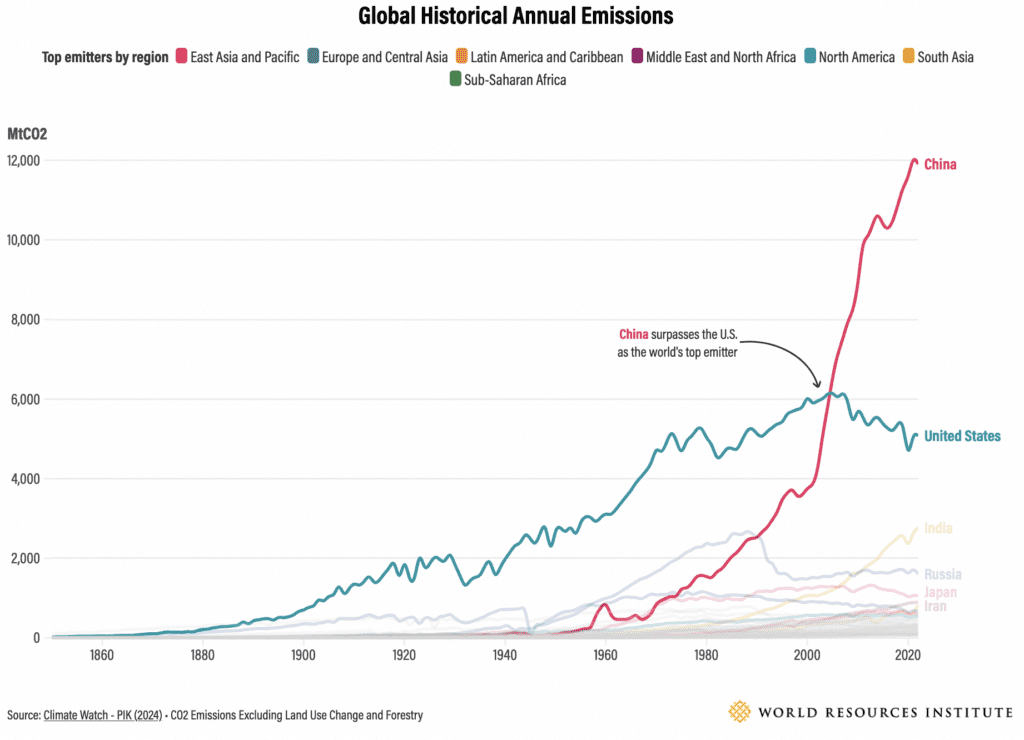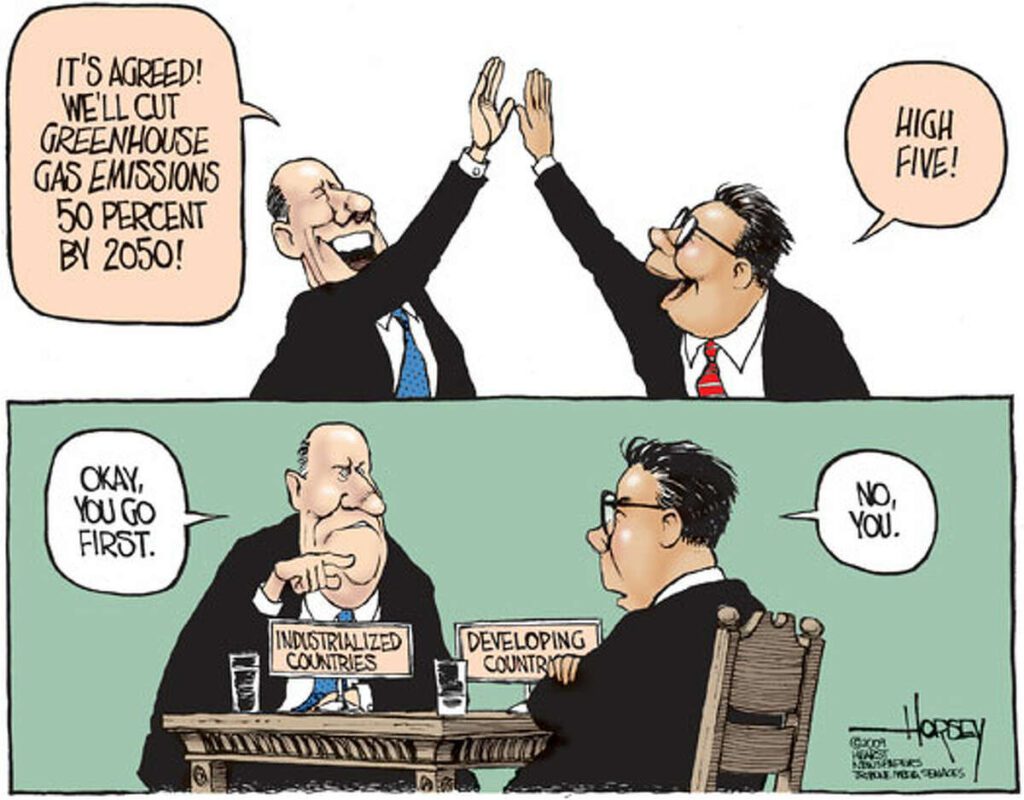What if the solutions to our biggest global challenges weren’t found in boardrooms or government summits but around kitchen tables, in community circles, or even in the quiet of our own hearts? The truth is, the power to create lasting change has always been in the hands of ordinary people coming together in extraordinary ways.
Think of Nelson Mandela who grew up in a rural South African village and trained as a lawyer. Or Greta Thunberg who began her climate activism as a solitary figure, skipping school on Fridays to protest outside Sweden’s parliament. Also Wangari Maathai, a Kenyan environmentalist, started her journey with a simple idea: planting trees.
Looking at the history of global CO₂ emissions, it’s clear that the United States together with Europe has been the top emitter for a long time. They built their wealth and economic power by burning fossil fuels, and now the rest of the world is bearing the consequences. China surpassed the U.S. in emissions in 2005, and their numbers are now skyrocketing—12 billion tons of CO₂ per year. It’s hard to wrap your head around just how massive that is.


And yet, there is one failed climate summit after the other. Country heads and negotiators repeatedly fail to act on their promises and agreements to curb CO₂ emissions and protect biodiversity, nature, and people. This ongoing inaction calls for a shift in focus. Instead of looking to people with influence and power as well as governments and institutions to solve these challenges, how about we turn our gaze towards ourselves, the people around us, and our communities?
By exercising our civil rights—such as the right to organize, assemble, and advocate for change—to build communities grounded in love and peace, we can come into impactful action. Communities that prioritize consent-based decisions come up with amazingly well-rounded and holistic approaches. If we start focusing on us and building peaceful inclusive communities, we lessen the focus and attention on those who are supposed to lead us through this poly-crisis but are, for some reason or another, not able to do so. Redirecting our focus changes where the energy flows. And what gets attention grows.
The key is to simply start.
- Begin with small experiments.
- Set up clear goals: What would we like to achieve?
- Then try it out. It can take so many shapes and forms.
- Evaluate as you go: How did it work? Should we continue or pivot?
- With every iteration, we keep learning. We discover new ways of navigating challenges, steering clear of power games and stalemates, and coming together as one.
Because ultimately, we realize that separation is an illusion—a construct of our minds that overlooks the interconnectedness of all life. From the air we breathe to the ecosystems that sustain us, everything is deeply intertwined. Recognizing this truth allows us to move beyond divisions and towards unity.
We believe that at the core of restoring balance are people. The way forward is for people to take back their power, but not in a way that repeats the mistakes of the past. Revolutions like the American and French once started with a push for freedom and equality, but they ended with new elites ruling instead. We need something different—something grounded in community and deep democracy.
By this, I mean systems that are consent-based, sociocratic, and inclusive, where we tap into the collective wisdom of all people. Studies show that the more diverse a group is—whether in education, background, ethnicity, age, or other factors—the better the solutions. These solutions tend to address problems more holistically and avoid many of the unintended consequences that come from narrow perspectives, like what we’ve seen with global warming after the industrial revolution.
| Sociocratic Consent-Based Decision-Making |
|---|
| Propose: Someone comes up with an idea or solution. |
| Clarify: Everyone asks questions to understand the idea better. |
| Share Reactions: Each person shares what they think or feel about the idea. |
| Discuss: The group talks it over and makes improvements. |
| Consent: If no one has a strong reason to say “no,” the group agrees to try it out. |
This is why we consider heart-centred, peaceful, and inclusive communities crucial for the world that we all wish to live in. Communities have always been the building blocks of society. In forms of families, schools, tribes in the earlier days, neighbourhoods, religious communities, cultural and artistic groups, support networks, civic associations and local councils, and so on.
In this governance form we can treat the planet, its resources, and each other with care. We believe that real positive impact starts in these communities, with people connecting, collaborating, and finding ways to move forward together.
In the past two weeks we had several exploration calls with people from all over the world joining us and sharing their reflections on peaceful and inclusive communities. The main challenge: bridging the gap with family members, friends, or colleagues who see the world so differently. It’s such a deeply personal and, at times, painful space to navigate. And that this is where the real work begins—not just changing minds but creating spaces for genuine dialogue and understanding.
That’s what our upcoming 2.5 hours interactive workshop is about: co-creating peaceful, inclusive communities by equipping people to reclaim their agency and engage in courageous conversations. It’s designed to help participants build practical tools for listening deeply, finding common ground, and sparking collaboration, even in challenging circumstances.
The workshop offers a mix of reflective exercises, interactive group discussions, and actionable strategies that can be applied directly to situations like the ones people have been describing.
Here’s the workshop info:
🗓 Date: January 8, 2025
⏰ Time: 16:00 – 18:30 CET/ 10:00 – 12:30 am EST /7:00 – 9:30 am PST
🌍 Location: Online (Zoom)
The path to a world that takes care of all life on Earth starts here—in the way we show up for each other and work together in our communities. Please inquire for more information via sendlove at heartwork dot earth.

